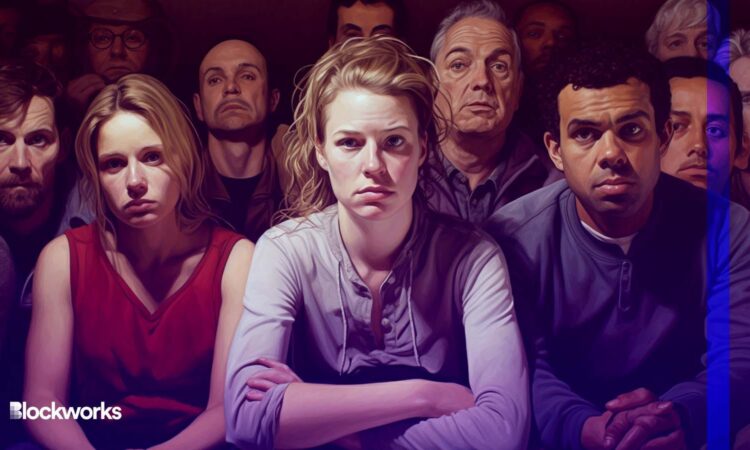
If banks have the power to de-bank people at will, how much freedom do we really have?
The unfortunate reality is: Not very much.
Crypto stands to be our saving grace.
Most people may not personally feel the impact of the immense control that banks have over our financial system. The general public naturally tends to trust established, reputable banks because it’s simply the norm: These banks are held to certain standards by governments, and they do their best to ensure that you, the customers, are satisfied.
But in today’s day and age, we need to consider what it means that banks have the final say over our ability to store our funds in a safe and secure environment. And if — after answering this question — we still want to place our trust in banks at all.
An uncommon exception
Politics aside, the news that former Brexit leader Nigel Farage’s UK bank accounts have been closed exposes the lack of financial and personal freedom in the traditional banking system.
Farage’s case is an uncommon example — it’s not every day that banks take a stand on political matters. That being said, the implications are profound: On the basis of one’s beliefs or political leanings, an individual can lose access to financial services.
To be sure, there is no certainty that politics were involved in this case; indeed, Farage’s bank claimed the action was taken due to a lack of sufficient funds in his account. However, whether Farage was de-banked for political reasons or commercial ones, the incident still sparked a response from Downing Street, indicating the government found the matter concerning enough to look into it further.
Going off the basis that political motives were at play here, the issue at hand is quite a serious one. To fully grasp its gravity, let’s look past Farage’s persona. Given he is a generally disliked figure in the UK, the news of his debanking may not have sparked as much outrage as it might have if a more “innocent” person had been impacted.
To illustrate this point, consider the following example: In a totalitarian regime, political dissidents who have the favor of outsiders globally could be de-banked for expressing their dissatisfaction with unjust governmental practices. Most would likely agree that this isn’t fair, and that banks are in essence telling customers that their personal freedoms can be taken away if they make their voices heard.
Take China, for instance. A few years ago, the Communist Party froze a former journalist’s bank accounts for criticizing the regime, cutting off all access to his savings. Beyond facing repercussions due to political views, some countries have threatened to limit banking services on the basis of personal beliefs, as Trudeau did with anti-vaxxers in Canada.
Regardless of whether or not we agree with the personal choices people make, do they not deserve the right to access their finances?
Enter crypto, the promisor of true financial freedom, one that doesn’t come at the expense of other personal freedoms. Thanks to the privacy embedded into crypto’s underlying decentralized infrastructure, individuals cannot be identified through their digital accounts. Even if they could be identified, the absence of a central authority in charge of crypto wallets means that no one would be able to shut down or remove their account access.
This is obviously a simplification of how cryptocurrency works — my point is that the overall promise behind the ethos of the crypto industry is one of financial freedom. Even if the kinks in how crypto wallets, exchanges and services haven’t been fully worked out to provide financial inclusion to all, at least crypto — unliked banks — has that as an aim.
Crypto offers a blanket of protection to individuals with alternative views, who can feel safe expressing themselves without fearing repercussions.
Read more from our opinion section: Bitcoin doesn’t need to change, but…
While there is no doubt that crypto is the remedy to the banking system’s flaws, there are important questions that must be addressed to successfully bring crypto into the equation. These include cases where banks’ power is used to act in ways that are seen as positive by the general public, such as imposing sanctions on countries that are viewed as acting unjustly toward citizens or other countries.
We can’t ignore that crypto has been used to circumvent such measures in the past, impacting its public perception. This is why calls for clearer regulation are critical and can be used to address these types of situations.
Crypto regulation should aim to balance financial freedom and compliance: Collaboration between the crypto industry and regulatory bodies is essential. By providing clear guidelines, encouraging innovation, promoting international collaboration and ensuring user protection, we can create an environment that empowers individuals while risks are mitigated.
While we will need to take a careful and measured approach to crypto, it is time that we recognize that it holds the key to bringing financial freedom, and on a much deeper level, personal freedoms, to people around the world.
Olga Rogerson serves as the COO at The People’s SCE. She is responsible for The People’s SCE business operations, overseeing business development, ecosystem support, and global sales. With over 14 years of experience in the crypto and telecoms industry across Europe, Olga provides deep expertise in client engagement and business management. Previously, Olga served as the Head of Customer Service at Blocktrade, a crypto exchange platform (2021-2022), and held various senior management positions at the roaming services company Top Connect (2015-2021).
Get the day’s top crypto news and insights delivered to your email every evening. Subscribe to Blockworks’ free newsletter now.
Want alpha sent directly to your inbox? Get degen trade ideas, governance updates, token performance, can’t-miss tweets and more from Blockworks Research’s Daily Debrief.
Can’t wait? Get our news the fastest way possible. Join us on Telegram and follow us on Google News.






